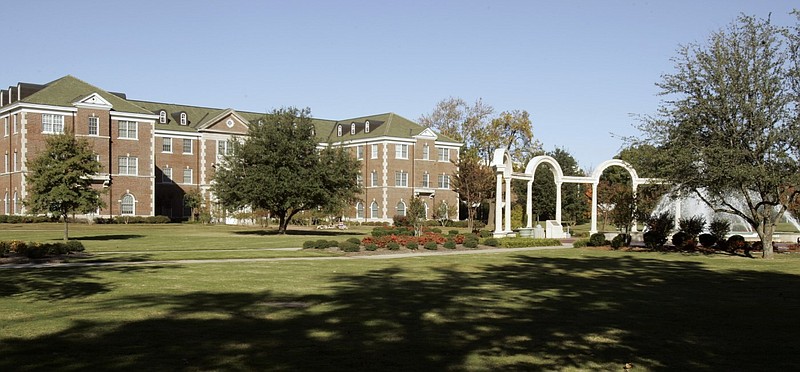How the New Title IX Regulation Benefits Sexual Assault Complainants
SAVE
December 12, 2020
Opponents of the U.S. Department of Education’s impending new Title IX regulation fear a huge setback in complainant’s rights. The National Women’s Law Center, a survivor advocacy organization, views the proposed regulation as radically weakening the department’s enforcement of Title IX protections against sexual assault and other forms of sexual harassment in schools. (1)
A strong argument can be made that the new Title IX regulation will benefit sexual assault complainants. (2) Accusers will have far more power to choose alternative paths of resolution, not be bound by their institutions’ rigid rules. Definitions of sexual harassment and supportive measures will be clear and reasonable. Complainants will be able to challenge the credibility of the respondent’s version of events via cross-examination.
In the spirit of empowering complaints with confidence, here are some of the ways the new Title IX regulation will benefit all complainants, the majority of which are women:
- Available remedies
- Remedial action
- Complainants will be assured if they are not satisfied with the actions of their institution, they can file a complaint with OCR, and if OCR finds the institution has violated these regulations, OCR will mandate remedial action.
- Remedial action
- Effect of other requirements and preservation of rights
- Constitutional protections
- Complainants’ Constitutional rights are protected, including all rights under the First, Fifth, and Fourteenth Amendments.
- Constitutional protections
- Designation of coordinator, dissemination of policy, and adoption of grievance procedures
- Designation of coordinator
- Complainants will know the identity and contact information of their institution’s Title IX Coordinator.
- Adoption of grievance procedures
- Complainants will be assured of a prompt and equitable response to and timely resolution of their complaints.
- Designation of coordinator
- Definitions
- Formal complaint
- Complainants will sign a document upon filing a formal complaint. This will be evidence that they initiated a formal complaint, in case they choose to file a complaint with OCR for institutional negligence or non-compliance with the regulation.
- Sexual harassment
- Complainants will be assured of protection against sexual harassment by faculty and staff.
- Complainants will be assured that sexual conduct that is severe, pervasive, and objectively offensive will not be tolerated at their institution.
- Supportive measures:
- Complainants will receive free supportive measures before or after filing of a formal complaint, or even when no formal complaint is filed.
- Formal complaint
- Recipient’s response to sexual harassment
- General
- Complainants will be assured their institution will respond to a formal complaint. No more deliberate indifference by institutions.
- Specific circumstances
- Complainants will be assured that complaints about serial perpetrators will be investigated.
- In cases where the complainant chooses not to file an initial formal complaint, but takes advantage of supportive measures, the complainant reserves the right to file a formal complaint at a later time.
- Emergency removal
- Complainants will be assured that respondents that are deemed an immediate threat to safety will be removed from campus.
- General
- Grievance procedures for formal complaints of sexual harassment
- Basic requirements for grievance procedures
- Complainants will be assured they have the right to see all evidence and that all relevant evidence will be evaluated.
- Complainants will be assured of no conflict of interest or bias in persons involved with evaluating the formal complaint, and that all parties involved will be properly trained.
- Complainants will be assured of a reasonably prompt conclusion of the grievance process, which still allows for delays for good cause.
- Complainants will be properly informed of the appeal process.
- Complainants will understand the range of available supportive measures.
- Investigations of a formal complaint
- Complainants will not be responsible for proving perpetrator’s responsibility.
- Complainants will be allowed to present witnesses and inculpatory and exculpatory evidence.
- Complainants will not be restricted from discussing the allegation.
- Complainants may have an advisor of their choice, and the advisor may participate in the proceedings per recipient restrictions equal to each party.
- Complainants will be allowed to cross-examine their alleged perpetrator, and challenge the alleged perpetrator’s credibility.
- Complainants’ previous sexual behavior or predisposition is not allowable evidence.
- Complainants do not need to be in the same room as the alleged perpetrator.
- Complainants will get a copy of the full investigative report at least 10 days prior to a hearing or determination regarding responsibility.
- Determination regarding responsibility
- Complainants will be assured a neutral party will be the decision-maker.
- Complainants will have written documentation of all steps taken in the adjudication process, in the event they choose to file an OCR complaint or lawsuit.
- Complainants will be assured the determination will be based on facts with a clear rationale for the institution’s actions, and that remedies provided will be designed to restore or preserve access to their education.
- Appeals
- Complainants have the right to appeal, if that right is available to the respondent.
- Complainants will be assured the appeal decision-maker has not been previously involved in the case.
- Informal resolution
- Complainants can seek an informal resolution if desired.
- Recordkeeping
- Complainants will be assured relevant records will be maintained in the event they choose to file an OCR complaint or lawsuit.
- Basic requirements for grievance procedures
Survivor advocacy organizations should embrace and endorse the benefits of the new Title IX regulation. They should focus on complainants’ empowerment upon implementation of the new rule.
Citations:

